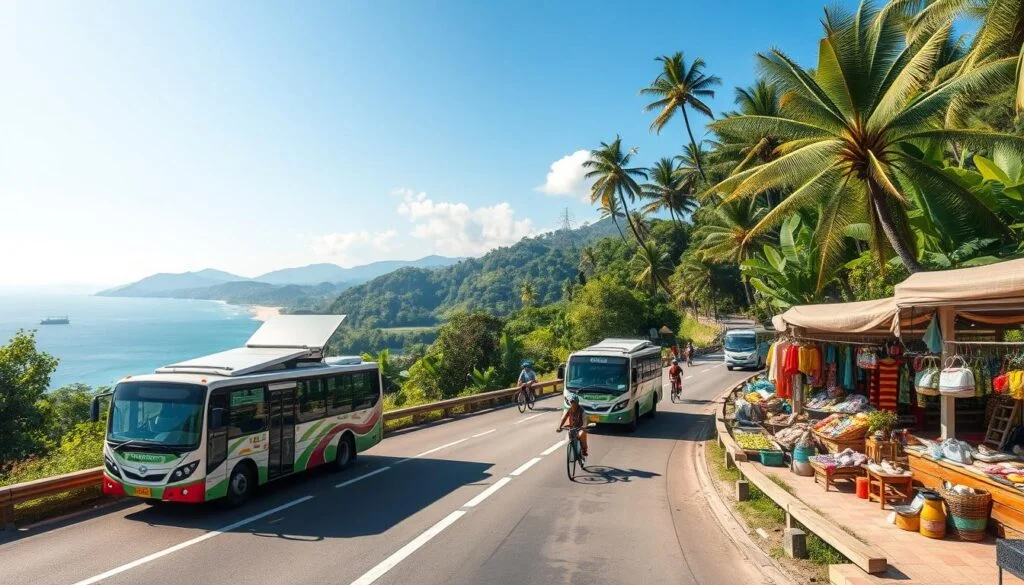King Charles III’s Sustainable Travel Initiatives: Leading by Example
As a global figure and monarch, King Charles III is committed to promoting sustainability and environmental stewardship, and his approach to travel reflects this dedication. With the increasing urgency of climate change and the need for responsible tourism, King Charles has taken significant steps to advocate for sustainable travel practices. This article explores his sustainable travel initiatives, highlighting key projects, partnerships, and the overarching vision that guides his efforts.
The Importance of Sustainable Travel
Sustainable travel is about minimizing the negative impacts of tourism on the environment, local cultures, and economies. As travel becomes more accessible, the challenges associated with its growth—such as carbon emissions, waste generation, and habitat destruction—have intensified. King Charles recognizes these challenges and has leveraged his position to raise awareness about the importance of sustainable travel practices.
By promoting environmentally friendly travel, he aims to encourage others to think critically about their choices and consider the long-term effects of their actions on the planet.
Championing Eco-Friendly Transportation
One of the primary focuses of King Charles’s sustainable travel initiatives is promoting eco-friendly transportation options. He has been an advocate for reducing carbon emissions associated with travel, particularly in the aviation and automotive sectors.
Supporting Sustainable Aviation
King Charles has engaged with various stakeholders in the aviation industry to encourage the development of sustainable aviation fuels (SAFs) and the adoption of greener technologies. SAFs can significantly reduce the carbon footprint of air travel, making flying more sustainable. By collaborating with airlines and aviation authorities, he seeks to accelerate the transition to greener alternatives, thereby influencing policy changes and industry standards.
Promoting Electric Vehicles
In his travels, King Charles often utilizes electric vehicles (EVs), showcasing their viability as a sustainable transportation option. His advocacy for electric mobility extends to promoting the development of EV infrastructure and incentives for individuals and businesses to adopt cleaner transportation methods. By demonstrating the benefits of electric vehicles, he aims to inspire a broader societal shift toward sustainable travel practices.
Engaging in Reforestation Efforts
Reforestation plays a critical role in mitigating climate change, and King Charles has been actively involved in various reforestation initiatives. Trees are essential for absorbing carbon dioxide, enhancing biodiversity, and restoring ecosystems. His commitment to this cause is evident through several key projects:
The Prince’s Trust and Reforestation
Under the umbrella of the Prince’s Trust, King Charles has supported numerous reforestation projects both in the UK and abroad. These initiatives focus on planting native trees, restoring degraded land, and empowering local communities to participate in environmental conservation. By actively engaging with youth and local organizations, he fosters a sense of stewardship and responsibility toward the environment.
Partnerships with Environmental Organizations
King Charles collaborates with various environmental organizations, such as The Woodland Trust and the World Wildlife Fund (WWF), to enhance reforestation efforts and promote biodiversity. Through these partnerships, he aims to create sustainable ecosystems that benefit both nature and local communities, emphasizing the importance of a collective approach to environmental challenges.
Advocating for Responsible Tourism
King Charles’s commitment to sustainability extends to promoting responsible tourism practices that benefit local communities and preserve cultural heritage.
Encouraging Local Engagement
In his travels, King Charles emphasizes the significance of engaging with local communities and supporting local economies. He advocates for travelers to immerse themselves in local cultures, participate in community-driven initiatives, and prioritize businesses that prioritize sustainability. By highlighting these values, he aims to reshape the narrative around tourism, encouraging a more conscientious approach that respects both people and places.
The Role of Heritage and Conservation
King Charles is passionate about protecting historical sites and natural landscapes, recognizing their cultural and ecological significance. He often advocates for sustainable tourism practices that prioritize the conservation of heritage sites, ensuring that future generations can experience and learn from these important places. His initiatives encourage travelers to appreciate the importance of preserving cultural identity while exploring the world.
Conclusion
King Charles III’s sustainable travel initiatives reflect his deep commitment to environmental stewardship and responsible tourism. Through advocacy for eco-friendly transportation, reforestation efforts, and responsible tourism practices, he sets an example for individuals and organizations alike. His efforts highlight the importance of making conscious travel choices that benefit the planet and its inhabitants. As more people become aware of the need for sustainable travel, King Charles’s initiatives can inspire a collective movement toward a more sustainable future for travel and tourism worldwide. By leading by example, he encourages us all to explore the world while respecting and protecting it.














Post Comment